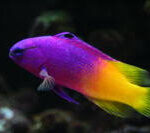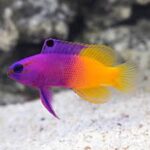Dragons and Their Influence on Dragon Boat Festivals in China

The dragon holds a powerful and revered place in Chinese culture, representing strength, prosperity, good fortune, and protection. Its symbolic influence extends beyond just mythology and folklore, reaching deeply into the country’s social practices and customs. One of the most prominent ways the dragon’s significance is expressed is through the Dragon Boat Festival (端午节, Duanwu Jie), an ancient event that celebrates the spirit of competition, community, and cultural heritage. Held annually on the fifth day of the fifth month of the lunar calendar, the Dragon Boat Festival is a celebration deeply rooted in Chinese traditions, honoring not only the revered dragon but also its historical and cultural connection to both national identity and local festivities.
This festival, with its vibrant races, ceremonial rituals, and symbolic offerings, is a testament to the lasting influence of the dragon in Chinese culture. The race of dragon boats itself is one of the most spectacular parts of the celebration, drawing large crowds who gather to witness the dragon-shaped boats speed through the water in fierce competition. In this article, we will explore the history, symbolism, and significance of the dragon in the context of the Dragon Boat Festival and how this mythical creature shapes the celebration of both cultural identity and community unity.
The Origins of the Dragon Boat Festival
The Dragon Boat Festival, one of China’s most important traditional festivals, has a history that stretches back more than 2,000 years. While the exact origins of the festival are somewhat uncertain, there are several popular legends and myths that attempt to explain its beginnings. The most widely accepted version of the festival’s origin centers around the story of Qu Yuan (屈原), a poet and statesman of the Chu state during the Warring States period. Qu Yuan, known for his deep patriotism and love for his country, drowned himself in the Miluo River after being exiled from his homeland. His death was mourned by the people of Chu, who believed that the dragon spirits of the river would protect Qu Yuan’s body from being devoured by fish.
To prevent the fish from eating Qu Yuan’s body, the people are said to have rowed their boats along the river, beating drums and splashing their paddles to scare the fish away. Over time, this act evolved into the traditional dragon boat races. Today, the festival not only honors Qu Yuan’s patriotism but also incorporates the symbolic role of the dragon, with dragon boats serving as the centerpiece of the event. The race itself is seen as both an act of respect for the poet and a celebration of the dragon’s power and protective spirit.
The Role of the Dragon in the Dragon Boat Festival
The dragon is an integral part of the Dragon Boat Festival. Its influence is most prominently seen in the dragon-shaped boats used in the races. These boats are typically long, narrow canoes or vessels decorated with a dragon head at the bow and a tail at the stern, embodying the mystical qualities associated with the dragon in Chinese culture. The boats are painted in vibrant colors, usually with a mixture of red, yellow, green, and gold, symbolizing good luck, wealth, and imperial power.
The use of dragon imagery in the boats reflects the belief in the dragon’s divine power and its ability to control the forces of nature, especially water. In Chinese folklore, dragons are thought to be masters of water, particularly rivers and seas. The dragon’s association with the water element connects it directly to the role of rain-bringer and water protector. In this sense, the dragon boats symbolize the control over water and the forces of nature during the Dragon Boat Festival, ensuring that the event remains festive and safe.
Furthermore, the dragon is a symbol of strength and vitality, and as such, the boat races are often intense and competitive, with teams rowing furiously to win. The emphasis on teamwork and cooperation in these races mirrors the way the dragon is said to work with other natural elements to maintain harmony and balance in the world.
The Symbolism of the Dragon in Dragon Boat Races
In the Dragon Boat Festival, the dragon serves not just as a decorative motif but also as a symbolic force that governs the spirit of the races. The boat itself, designed to resemble a dragon, represents a number of core principles, from courage to resilience, loyalty, and strength.
- Unity and Teamwork: Dragon boat racing is inherently a team sport. The dragon boat itself represents the unity of a community or group, as all members must row in synchrony for the boat to move swiftly and efficiently. This reflects the deep cultural value of harmony and cooperation in Chinese society, where individuals work together for a common goal. The dragon, as a divine symbol of unity, emphasizes the importance of collective strength in achieving success.
- Protection and Fortune: The dragon’s association with good fortune and protection is another key element in the festival. In ancient times, dragons were believed to have the ability to ward off evil spirits and bring prosperity to the people. The races and the festival rituals, including the preparation of zongzi (sticky rice dumplings wrapped in bamboo leaves), are seen as means to invite blessings and ensure a bountiful harvest and protection from misfortune.
- Power and Energy: The dragon represents vitality and life force. In the context of the races, this symbolism is amplified, as the exertion of energy and the drive to win mirror the dragon’s boundless power and energy. The dragon boat races are a celebration of this strength, both physical and spiritual, and participants view the event as a way to channel the dragon’s powerful essence during the competition.
- Rain and Agriculture: Dragons are often associated with rain in Chinese mythology. As creatures capable of summoning rain, dragons were believed to be key to the agricultural prosperity of ancient China. By participating in the races, communities symbolically ask the dragon for abundant rainfall and good harvests. This connection to agriculture is one reason why the Dragon Boat Festival occurs during the fifth month of the lunar calendar when farming communities would be most concerned with the well-being of their crops.
Dragon Boat Festival Rituals and Offerings
While the dragon boat races are the centerpiece of the Dragon Boat Festival, the celebration also includes a variety of rituals and customs meant to honor the dragon and seek its favor. One of the most prominent rituals is the preparation of zongzi, a traditional food made of sticky rice, meat, and other fillings wrapped in bamboo leaves. The act of preparing and eating zongzi is thought to have originated from the attempts to protect Qu Yuan’s body by throwing food into the river. The sticky rice is also seen as a sacrifice to the river dragon, seeking its blessings for protection and good fortune.
Another significant ritual during the Dragon Boat Festival is the hanging of pouches filled with aromatic herbs or mugwort. These pouches are hung over doorways to ward off evil spirits and are believed to invite the protection of benevolent dragon spirits. These symbolic offerings demonstrate the deep cultural belief that the dragon has the power to influence both the physical and spiritual realms.
The Global Influence of the Dragon Boat Festival
Although the Dragon Boat Festival has deep roots in Chinese culture, it has grown in popularity and significance across the world. Today, dragon boat races are held in many countries and regions, including Southeast Asia, North America, and Europe, often as part of cultural exchange programs or international sporting events. The dragon boat, once a symbol of Chinese spiritual beliefs and agricultural rituals, has evolved into a global icon of competition, teamwork, and cultural pride.
In these international competitions, the symbolism of the dragon often transcends its original religious and spiritual meanings, focusing more on themes of unity, respect, and cultural celebration. However, the core essence of the dragon, representing strength, resilience, and community spirit, remains central to the practice of dragon boat racing worldwide.
Conclusion
The Dragon Boat Festival stands as a vibrant testament to the lasting influence of the dragon in Chinese culture. From its roots in ancient myths and historical traditions to its role in contemporary celebrations, the dragon’s symbolic presence enriches the festival in multiple ways. Whether through the dragon-shaped boats, the symbolism of strength and unity, or the rituals that honor both the dragon and the spirit of community, the festival serves as a reminder of the deep cultural significance the dragon holds in Chinese society.
As the festival continues to grow in popularity across the world, its celebration of the dragon’s power, protection, and vitality remains a bridge between the ancient and modern, local and global, uniting people in a shared celebration of life, culture, and community spirit.

